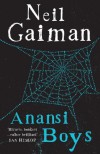William's Book Blog
Mostly book reviews. Very rarely I'll allow William Campbell Powell (author) to write a blog entry on publishing activity, but he's under orders to keep that stuff over on his Facebook page and on http://williamcampbellpowell.com
Currently reading
Etiolated, Ineluctable, Pugnacious

No, not the book itself, but arguably the three adjectives Miéville overused most, to the point where I could see the next one coming. Adjective storm ahead, skipper - shall I alter course? No way around it, ship-mates, just batten down the hatches, and get the men down off the rigging.
Though come to think of it, ineluctable thus becomes appropriate. There was an ineluctable pomposity to Miéville's vocabulary that set my teeth on edge. Channelling the spirit of Dickens, or possibly Carroll's Humpty Dumpty, Miéville launches ponderous descriptive passages like a French column plodding up towards the British lines at Waterloo. Yes, I get the point. New Crobuzon has many poor districts, and, gosh! they're all very similar.
So pugnacious, too, becomes appropriate, as the reader (or listener, in my case) is battered by the word-storm that makes no apology for consuming 31 hours and 5 minutes of my commuting time. Still, the Audible app did award me a badge for endurance.
Etiolated? Well, it was certainly drawn out, but it was not pale. Miéville's palette was certainly not pale, though the two colours most used were blood-red and faecal brown. Maybe that's just par for the course for the New Weird genre.
Don't let the above give you the impression I didn't like the book - there was much to commend, and I shall get to that. My point is that there was a lot of baggage that wasn't to my taste, and it did go on. And on.
There was at least one occasion where I fell asleep listening to it - not while driving, I hasten to add - and when consciousness returned I wondered about rewinding. After a minute or so, however, I realised I hadn't really missed anything vital, in terms of plot development. Though I might not be able to answer crucial questions on the sewage arrangements of whichever New Crobuzon slum the narrator has just escorted me through.
OK. Some positives.
The protagonists were amusing, flawed, interesting. I cared about Isaac, Lin, Derkhan and Yagharek. The ideas kept coming, the plot kept twisting and in ways I did not always see coming from afar.
The villains were less rounded than I'd initially felt to be the case (in my interim review). However, they mostly did what villains were supposed to do. Sadly, the demons were throwaway and didn't contribute to the mayhem, which was a shame - perhaps they'll do more in a future book in the series…
The ending, when it finally came, was a mix of tragedy and anti-climax. The super-weapon worked flawlessly (there had been times when I was convinced that Isaac was more charlatan than scientist) and of all of the many things that could have gone wrong, and been used to wring more tension from the big showdown, not one materialised. However, the aftermath is perhaps more interesting for it. Some villains got their come-uppance. Others did not. No-one is undamaged by the events of the book. This is definitely not a happy-ever-after novel.
Interestingly, the book ends with the garuda, Yagharek. Yagharek - arguably - is the root cause of all the mayhem, all of which in some sense flows from his crime. Yagharek is the only character who is permitted a first-person voice, and it is surprisingly fitting that he speaks the book's close.









 1
1
 1
1